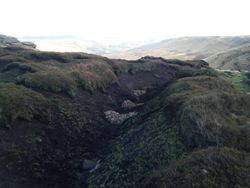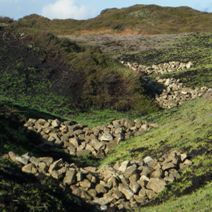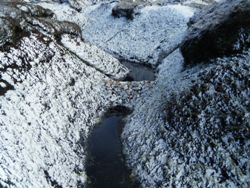Moors for the Future have put in place almost 5,000 dams at sites across the Peak District. The work was started in November and our teams have been out in all weathers from bright winter sunshine to snow and driving rain.
Why do we block gullies?
Gullies that have formed in eroded peat are blocked to help restore water levels, preventing the moorland from drying out and suffering further damage from wind and rain. It also helps create the right conditions for re-vegetation of the bare peat.
The dams are already working, slowing the water flow and keeping the peat sediment in the landscape where it’s needed instead of leaching out and draining into reservoirs where it has to be cleaned up before it enters the water supply.
Dams - key figures
Kinder:
- 1400 stone dams
- 900 timber dams
Bleaklow:
- 1800 stone dams
- 850 heather bale dams

Newly blocked dry gully (left), and a gully a few weeks after blocking (right)
Discover more
- photo gallery
- gully blocking
- how peat is formed
- water management

